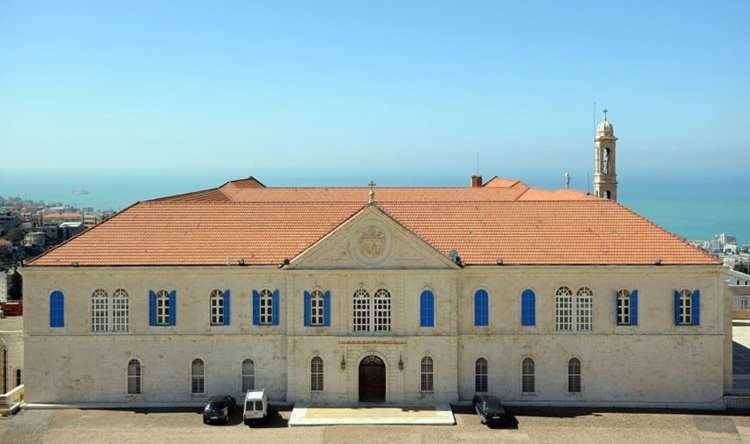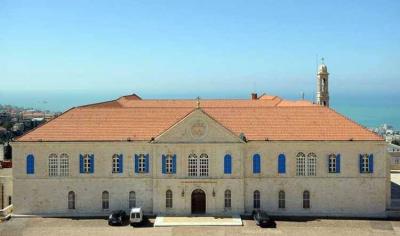The lack of trust among Lebanese parties and the differing approaches to Hezbollah's weapons reflects negatively on the Maronite Patriarchate’s initiative, which is at risk of failing to achieve results that were expected to culminate in a document that Bkerke hoped would serve as a unifying national rescue. The first indication of this emerged from remarks by the head of the Lebanese Forces party, Samir Geagea, who described the initiative as a "pot of stew," expressing his skepticism about the usefulness of the meetings bringing together representatives from Christian parties at Bkerke. In an interview with Lebanon TV, he stated that he sees no benefit from them, emphasizing the participation of the Lebanese Forces for various reasons, primarily for the sake of the Church.
Geagea expressed his lack of trust in the head of the Free Patriotic Movement, Deputy Gibran Bassil, saying, "We have learned from past experiences not to give the movement even a scrap of paper before it commits to declared positions." He added that they delineated points clearly at Bkerke and gave him room to think. Sources within the Lebanese Forces attribute Geagea’s comments to a lack of trust in Bassil, stating to "Asharq Al-Awsat": "The head of the Forces warns about how Bassil approaches matters based on previous experiences." However, they affirm that the Lebanese Forces continue to coordinate and collaborate with the opposition regarding the presidency, including with Bassil's movement, and emphasize their desire for a unifying national document despite their expressed doubts.
These doubts, according to sources, are fundamentally linked to Bassil’s relationship with Hezbollah. They say: "If another group claims that the party's weapons protect Lebanon, it means we are still at square one. Therefore, from this perspective, we believe that if we do not agree on the constants for diagnosing the crisis and how to solve it by outlining a roadmap for handing over these weapons, it will simply be a pot of stew."
Conversely, leadership sources in the Free Patriotic Movement responded to Geagea’s dismissal of the Maronite Patriarchate's initiative by stating to "Asharq Al-Awsat": "We do not stew pots, nor do we participate in a pot of stew." They reaffirm their position that the party's weapons are a strength for protecting Lebanon while rejecting their use in others' wars. This disagreement in addressing this issue of weapons lies between Bassil's movement and other participating Christian parties at Bkerke.
While sources indicate that meetings at Bkerke have thus far discussed 80 percent of the issues and anticipate that the document will not take long to be issued, they confirm that the Free Patriotic Movement calls for respecting Resolution 1559, which stipulates the disarmament of militias. At the same time, they insist that civil peace remains a priority, adding: "Our disagreement with Hezbollah and our refusal to get involved in wars outside Lebanon does not mean we accept isolating any Lebanese component."
From this standpoint, sources assert that the Free Patriotic Movement will continue to participate in the Bkerke meetings, hoping to reach a nationally significant document that can serve as a historical instrument to stop the collapse of the state and institutions, elect a president, and establish a genuine partnership that concerns not only Christians but all Lebanese components.
### Consultative Process
Meanwhile, sources from the Kataeb Party reiterated their welcome for the Bkerke initiative and all efforts aimed at extricating Lebanon from its crisis. While information had indicated that the meetings in Bkerke gathering representatives from Christian parties would conclude with the issuance of a document, the Maronite Archbishop of Antelias, Bishop Antoine Bou Najm, clarified days ago in a statement that Patriarch Bechara Rai had tasked him with launching a consultative process for a national unifying initiative, emphasizing the constants valued by Lebanese people across their diverse components, diagnosing areas of concern, and proposing a roadmap for solutions.
He noted that the consultation started with Christian political forces in an initial phase, with plans to expand the dialogue to include all spiritual leaders, Lebanese political authorities, and vibrant social forces in a second phase. He stated that the initiative began over a year ago, is being monitored by a specialized team in constitutional law and public policy, and is free from any bias towards any particular political group, aligning instead with all good intentions working for Lebanon's salvation, as indicated by "Asharq Al-Awsat."




